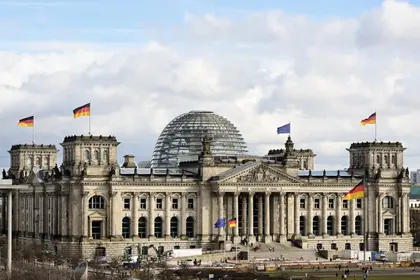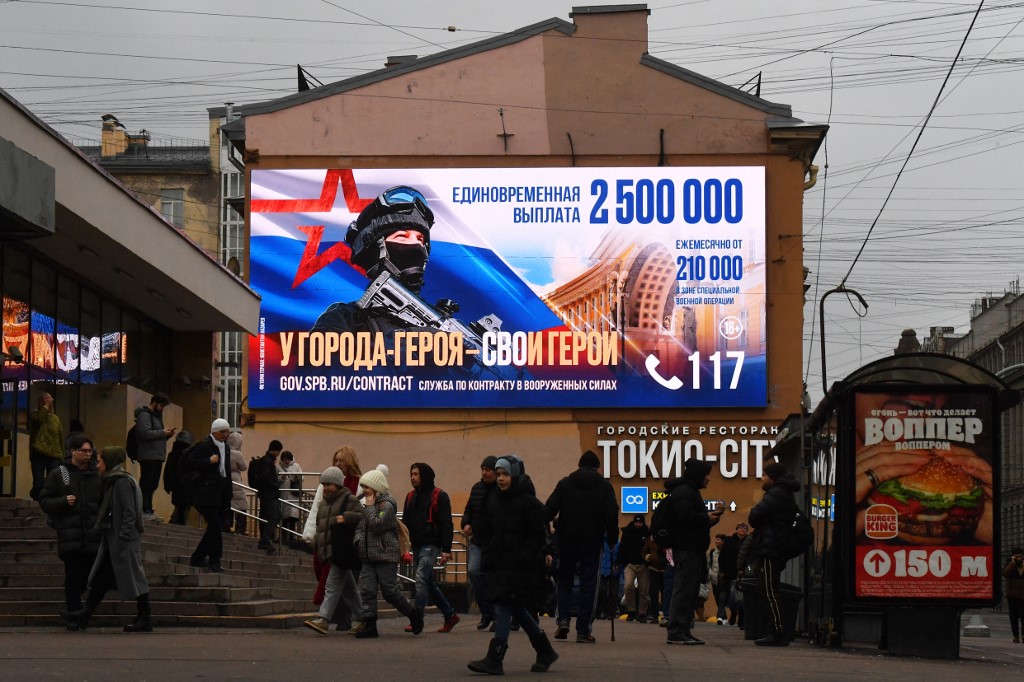To be independent, Ukraine needs a backer. In 1994, it was US president Bill Clinton who took up this role. That is what Ukraine’s first president, Leonid Kravchuk, told me in 1998, when we met to discuss Ukraine’s decision to give up its nuclear weapons.
From the start Kravchuk was frank that the negotiations with Russia on denuclearization were not about the weapons themselves, but about Russia recognizing Ukraine’s independence. Kravchuk knew from the start that Ukraine would never have been able to control, deploy or maintain the weapons without Moscow’s help. They were therefore a bargaining chip for a bigger prize.
JOIN US ON TELEGRAM
Follow our coverage of the war on the @Kyivpost_official.
Now, 31 years later and with growing anxiety about newly inaugurated President Trump’s position toward Ukraine and whether he will reduce American power in Europe, the role of backer of a sovereign Ukraine falls to Germany, whether Berlin likes it or not.
To prepare for negotiations with Russia, Germany must therefore overcome its strategic inertia as well as its fears around the ‘use of force’. It must revisit the origins and the limits of its civilian power – Zivilmacht – narrative and rethink the underlying principles.
Currently, there are three core maxims that underpin Zivilmacht: “Never Again,” “Never Again Alone” and “Never Again Auschwitz.” It is now time to add a fourth: “Never Again Ignore.”

Yanukovych-Era Crime Boss May Have Been Killed by Suicide Bomber
The reason is obvious. Germany must grab this chance to prove, finally, that it is willing and able to become a leading security provider for Europe.
In the autumn of 1991, Chancellor Kohl initially preferred a confederation of Russia and Ukraine. Realizing that united the two countries would pose a threat tantamount to that of the ex-Soviet Union, he was determined instead to put as many states between Russia and Germany as possible.
However, since then, Germany has failed to sufficiently support Ukrainian independence in support of this strategic goal. Instead, they gave Moscow a free hand to realize the Russian motto of “Keep Ukraine Unstable.”
German policymakers have not grasped Ukraine’s pivotal role in Europe’s security or how they have benefited from the Ukrainian security buffer. Rather, Ukrainian security concerns have been ignored, while wishful thinking about Russia became practical policy, even after Russian military action began in 2014.
As a concept, “Never Again Ignore” is born directly out of this German ignorance of Ukraine since 1991. As a lens, it helps us comprehend what has driven German policymakers’ failure to live up to their “historical responsibility” in international affairs, derived from the country’s vaunted memory culture.
However, while the latter focused rightly on the Holocaust, it has nonetheless too often neglected the many victims of the Nazi occupation in the former Soviet Union, particularly the atrocities committed in Ukraine. The foundation of Germany’s role as an actor has thus been inadequate and asymmetric.
“Never Again Ignore” is a means to enable Germans to engage fully in this additional element of their history. As the debate in Germany over the “use of forces” demonstrates, there is a deep-seated “fear of losing one’s innocence again.” This highlights the moral connection that remains, even unconsciously, between Germans today and their ancestors when dealing with Ukraine.
By stating unambiguously that, “We want to be measured by our own deeds and not by those of our Nazi ancestors,” a new pathway would open, enabling Germans to emancipate themselves from their Nazi heritage and empower themselves. To turn the very worst of their past into a clear-eyed and potent basis for positive action, while maintaining moral awareness to draw the right lessons from the darkest chapter in their history.
As for future peace negotiations over Ukraine, “Never Again Ignore” is a means to let go of the fixed idea of Russia being a trustworthy and like-minded partner. Instead, it is Ukrainians who deserve this attribute.
As Boris Tarasyuk, one of the main negotiators of Ukraine’s denuclearization, told me in 1997, Ukraine’s bona fide promises about their non-nuclear intent were not believed in the West, whereas Russian-spread misconceptions about Ukraine were.
Germany needs to consider how to increase Ukraine’s leverage in any negotiations as, in principle, Ukraine’s position has not changed since 1993. Back then, when it became obvious that Ukrainians would not find a fair solution with Russia on their own due to their lack of leverage they turned to the US for support – and got it.
Now, as the forces of history have brutally returned, Germany must fulfill this role, supporting Ukraine in the face of what will be harsh and brutal Russian demands.
“Never Again Ignore” reminds Germans to accept that Russian imperial identity and ambitions have not changed. Rather, only a sovereign and independent Ukraine can ensure a lasting peace in Europe.
Tarasyuk recalled how in January 1993 he explained to President George H. W. Bush that Ukraine should not be viewed through the lenses of Moscow. Instead, Ukraine had its own national interests. This remains the case today.
Finally, to achieve this, “Never Again Ignore” demands Germany consider security guarantees and Ukrainian NATO membership. The knowledge of German historical negligence should be at the forefront of thinking here.
Tarasyuk viewed the 1994 Budapest Memorandum a success at the time but declared: “There is only one institution which can not only pronounce guarantees but also enforce them, that is NATO.”
Germany must acknowledge its historical mistake in 2008 and take seriously the need for security guarantees for Ukraine. Here the experience of West German integration into NATO in the 1950s provides an unambiguous reminder of the power such guarantees have.
In conclusion, Germany needs to become more imaginative and courageous in its approach to Russia. Its modern-day risk aversion must change if Europe is once again to be secure. Overall, Germans would do well to heed Leonid Kravchuk’s final words to me: “As long as the world it run by the principle of force, what is allowed to Russia is not allowed to Ukraine.”
The new maxim of “Never Again Ignore” can help Germany escape this constraint and release its strategic fears, empowering Germans to finally live up to the historical responsibility they claim as their own.
The views expressed in this opinion piece are the author’s and not necessarily those of Kyiv Post.
You can also highlight the text and press Ctrl + Enter










